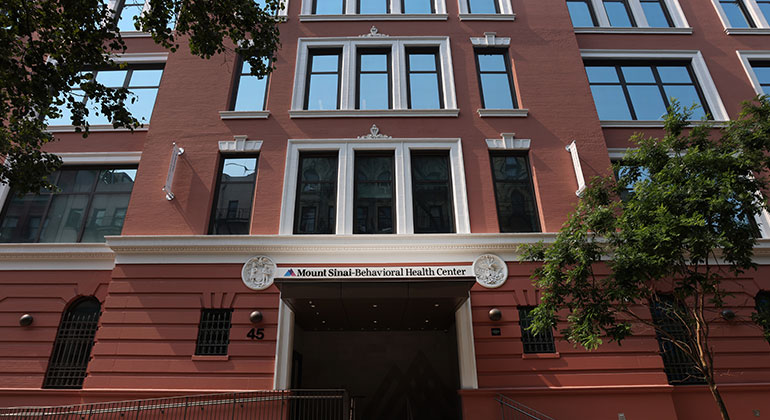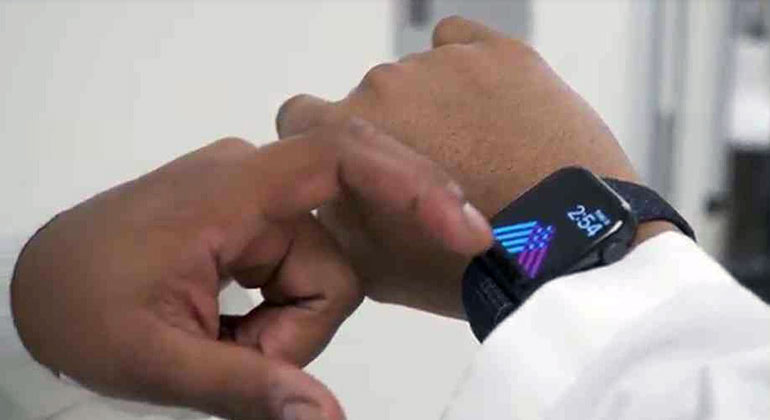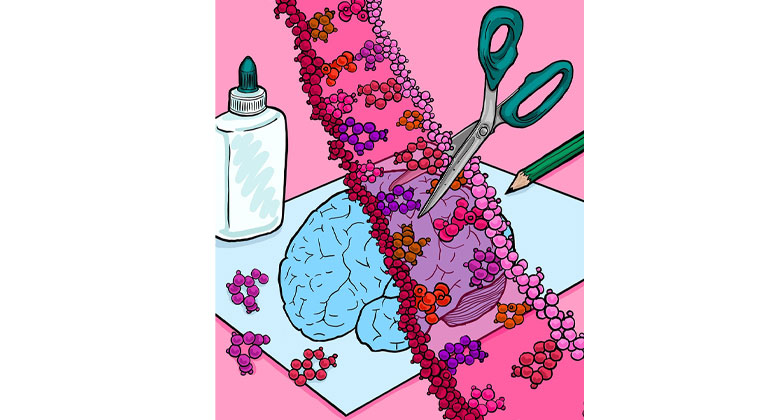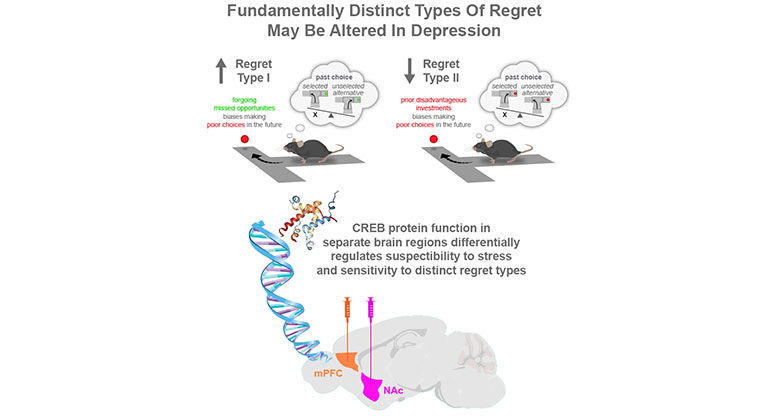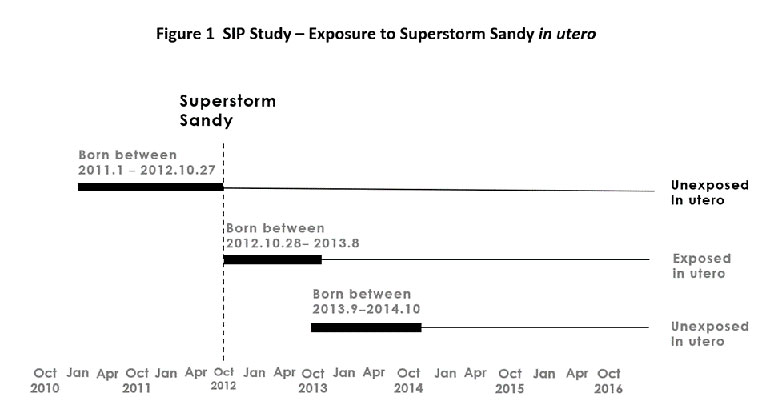Advanced Grandparental Age Associated With Increased Risk of Autism
Men who have children at an older age are more likely to have grandchildren with autism, according to new research .
Men who have children at an older age are more likely to have grandchildren with autism, according to research published in JAMA Psychiatry. An international team of researchers, including Avi Reichenberg, PhD, of the Seaver Autism Center at The Mount Sinai Medical Center, have shown for the first time that risk factors for autism may accumulate over generations.
By using Swedish national registers, researchers identified 5,936 individuals with autism and 30,923 healthy controls born in Sweden since 1932. They had complete data on each individual’s maternal and paternal grandfathers’ age of reproduction and details of any psychiatric diagnosis.
The study found that men who had a daughter when they were 50 or older were 1.79 times more likely to have a grandchild with autism than men who had children when they were 20-24. Men who had a son when they were 50 or older were 1.67 times more likely to have a grandchild with autism.
"This study is important because it tells researchers where to look for the causes of autism. We need to expand our search,” said Dr. Reichenberg, who is a Professor of Psychiatry and Preventive Medicine and a Fellow in the Seaver Autism Center at Mount Sinai. “We must look at the behaviors of parents as well as at the behaviors of grandparents. When we look, for example, for environmental toxins that may be associated with autism, we also need to look for toxins our grandparents may have been exposed to. All of these need to be examined in order to understand autism."
Previous studies have shown that older paternal age is a risk factor for autism in children. Men aged 50 or older are twice as likely to have a child diagnosed with autism compared to younger men.
“Importantly, while the risk is increased, it is still small,” said Dr. Reichenberg. “However, the findings are important in understanding the complex way in which autism develops.”
Most genetic mutations do not result in the child developing autism. The new findings suggest that these ‘silent’ mutations are passed on to the otherwise healthy child, but may influence the risk of future generations developing autism. The authors suggest that genetic risk could accumulate over generations, or could interact with other risk factors, until it reaches a threshold resulting in the disorder manifesting itself.
Autism and the autism spectrum disorders (ASDs) are complex neurobiological disorders that inhibit a person's ability to engage in reciprocal social interactions and to develop social relationships, and are often accompanied by behavioral challenges. ASDs are diagnosed in one in 110 children in the United States, affecting four times as many boys as girls. The U.S. Centers for Disease Control and Prevention has called the high prevalence of ASDs a national public health crisis. A specific genetic disorder is identified in at least 15 to 25 percent of people with an ASD, and the proportion with an etiological diagnosis will continue to increase with the more widespread use of genetic testing.
The Seaver Autism Center provides comprehensive assessment and care for people with autism spectrum conditions. It includes a multi-disciplinary team of experts that use genetics, molecular biology, model systems, neuroimaging, and therapeutics to improve patient care and to develop the next generation of treatments. The Seaver Autism Center provides opportunities to participate in research studies aimed at understanding the causes of autism spectrum conditions and developing treatments. For more information, visit www.SeaverAutismCenter.org.
About The Mount Sinai Medical Center
The Mount Sinai Medical Center encompasses both The Mount Sinai Hospital and Icahn School of Medicine at Mount Sinai. Established in 1968, the Icahn School of Medicine is one of the leading medical schools in the United States, and is noted for innovation in education, biomedical research, clinical care delivery, and local and global community service. It has more than 3,400 faculty in 32 departments and 14 research institutes, and ranks among the top 20 medical schools both in National Institutes of Health (NIH) funding and by U.S. News & World Report.
The Mount Sinai Hospital, founded in 1852, is a 1,171-bed tertiary- and quaternary-care teaching facility and one of the nation’s oldest, largest and most-respected voluntary hospitals. In 2012, U.S. News & World Report ranked The Mount Sinai Hospital 14th on its elite Honor Roll of the nation’s top hospitals based on reputation, safety, and other patient-care factors. Mount Sinai is one of 12 integrated academic medical centers whose medical school ranks among the top 20 in NIH funding and by U.S. News & World Report and whose hospital is on the U.S. News & World Report Honor Roll. Nearly 60,000 people were treated at Mount Sinai as inpatients last year, and approximately 560,000 outpatient visits took place.
For more information, visit http://www.mountsinai.org.
Find Mount Sinai on:
Facebook: http://www.facebook.com/mountsinainyc
Twitter @mountsinainyc
YouTube: http://www.youtube.com/mountsinainy
# # #
About the Mount Sinai Health System
Mount Sinai Health System is one of the largest academic medical systems in the New York metro area, with more than 43,000 employees working across eight hospitals, over 400 outpatient practices, nearly 300 labs, a school of nursing, and a leading school of medicine and graduate education. Mount Sinai advances health for all people, everywhere, by taking on the most complex health care challenges of our time — discovering and applying new scientific learning and knowledge; developing safer, more effective treatments; educating the next generation of medical leaders and innovators; and supporting local communities by delivering high-quality care to all who need it.
Through the integration of its hospitals, labs, and schools, Mount Sinai offers comprehensive health care solutions from birth through geriatrics, leveraging innovative approaches such as artificial intelligence and informatics while keeping patients’ medical and emotional needs at the center of all treatment. The Health System includes approximately 7,300 primary and specialty care physicians; 13 joint-venture outpatient surgery centers throughout the five boroughs of New York City, Westchester, Long Island, and Florida; and more than 30 affiliated community health centers. We are consistently ranked by U.S. News & World Report's Best Hospitals, receiving high "Honor Roll" status, and are highly ranked: No. 1 in Geriatrics and top 20 in Cardiology/Heart Surgery, Diabetes/Endocrinology, Gastroenterology/GI Surgery, Neurology/Neurosurgery, Orthopedics, Pulmonology/Lung Surgery, Rehabilitation, and Urology. New York Eye and Ear Infirmary of Mount Sinai is ranked No. 12 in Ophthalmology. U.S. News & World Report’s “Best Children’s Hospitals” ranks Mount Sinai Kravis Children's Hospital among the country’s best in several pediatric specialties.
For more information, visit https://www.mountsinai.org or find Mount Sinai on Facebook, Twitter and YouTube.

Mount Sinai Awarded Grant to Assess Music’s Impact on Well-Being, Depression
Apr 27, 2023 View All Press Releases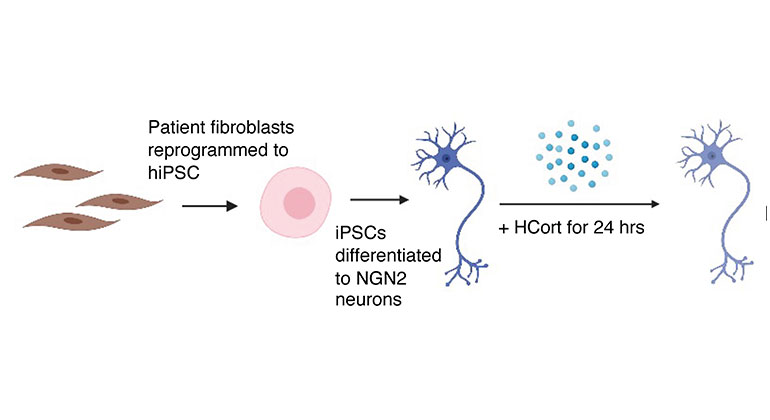
Stem Cell Study Reveals How Neurons From PTSD Patients React to Stress
Oct 20, 2022 View All Press Releases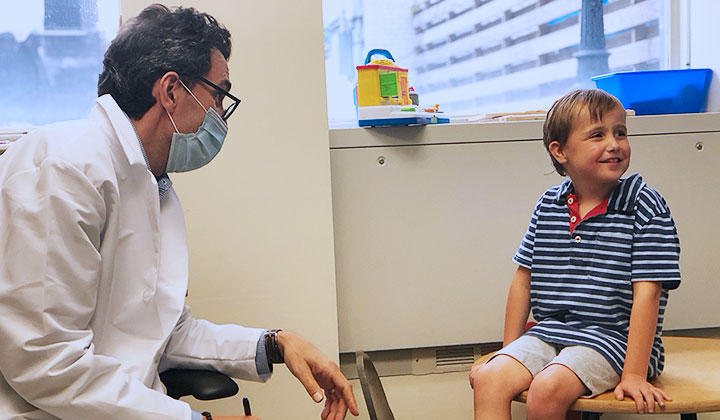
New Study Suggests Ketamine May Be An Effective Treatment for Children with ADNP Syndrome
Sep 06, 2022 View All Press Releases
